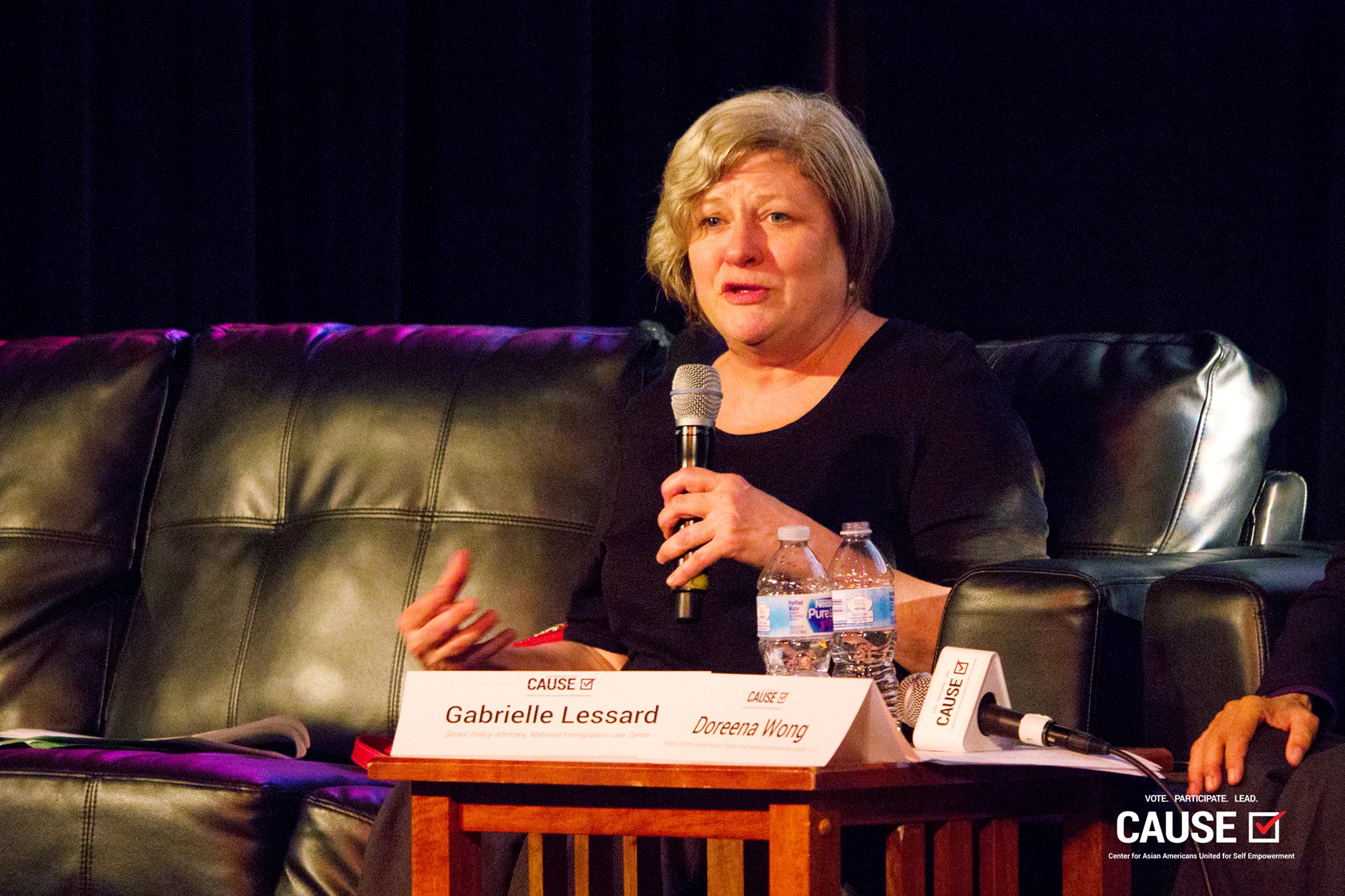Los Angeles, CA – On October 25th, 2018, CAUSE held Healthcare in the Immigrant Community: A Town Hall, which is a part of the VOTE Initiatives (Voter Outreach, Training, and Education Initiatives), at the Ground Zero Cafe at the University of Southern California. The event was held in partnership with the USC Sol Price School of Public Policy-API Caucus.
Kim Yamasaki, Executive Director of CAUSE, started off the program by introducing the topic of healthcare for the town hall. She proceeded to recognize the event’s sponsors, along with attending CAUSE board members.
Afterwards, Adam Hsu, Director of Programs at CAUSE, introduced CAUSE’s leadership development programs and VOTE Initiatives, inviting the students in the audience to apply for the CAUSE Leadership Academy summer internship program.
As the panel moderator, Sylvia Dsouza, Director of Development, Parent Relations, & International Initiatives at the USC Sol Price School of Public Policy, Office of Development & External Affairs, introduced the panelists of the afternoon. She expressed her excitement to be part of a public forum on a topic as crucial and pervasive as healthcare.
Doreena Wong, Project Director-Health Access Project at Asian Americans Advancing Justice-LA, shared that through her work at Advancing Justice Los Angeles, her team is “trying to mobilize the community to advocate for themselves,” citing a low healthcare literacy in Asian immigrant communities.
Gabrielle Lessard, Senior Policy Attorney at National Immigration Law Center, shared her thoughts on how the topic of public charge is affecting immigrant communities. “There’s a lot of fear and a lot of misinformation,” she explained, which is causing a chilling effect that make individuals afraid to enroll and/or continue public health and nutrition programs.
Peter Barth, Director of Public Policy & Government Relations at First 5 LA spoke on the negative impact that barriers to healthcare have on children and families. He explained how due to confusion and fear of the healthcare system, “families aren’t taking children to the clinic, not getting vaccines, and not taking children to preschool.”
As the panel wrapped up, attending guests were encouraged to ask the panelists their own questions. They were also invited make public comments and fold them into origami paper cranes as a part of Asian & Pacific Islander American Health Forum (APIAHF) One Nation campaign. The Origami Crane Project is a part of the campaign to send 23,000 cranes (for the 23 million AAPI in the USA) as a message from the AAPI community that it is against the proposed rule of public charge.









